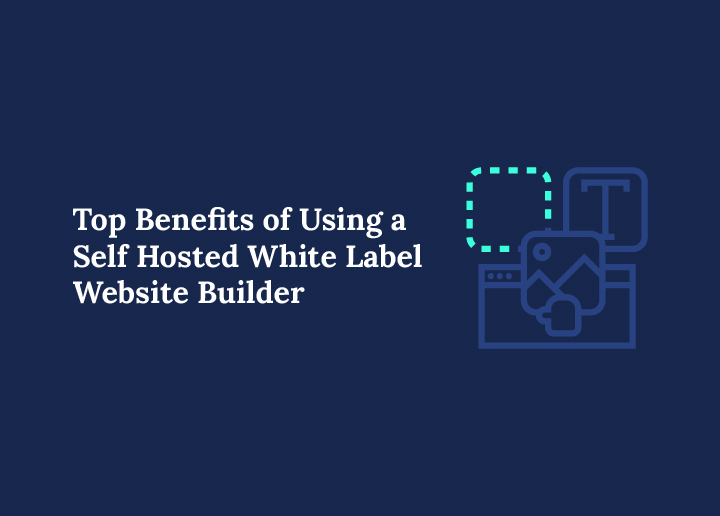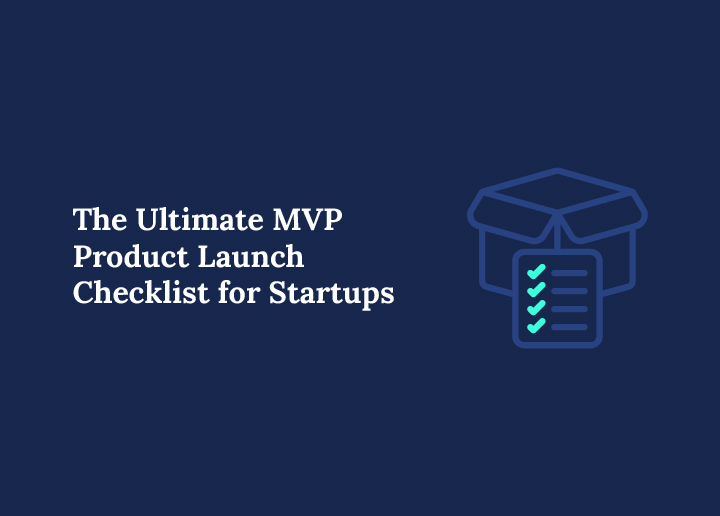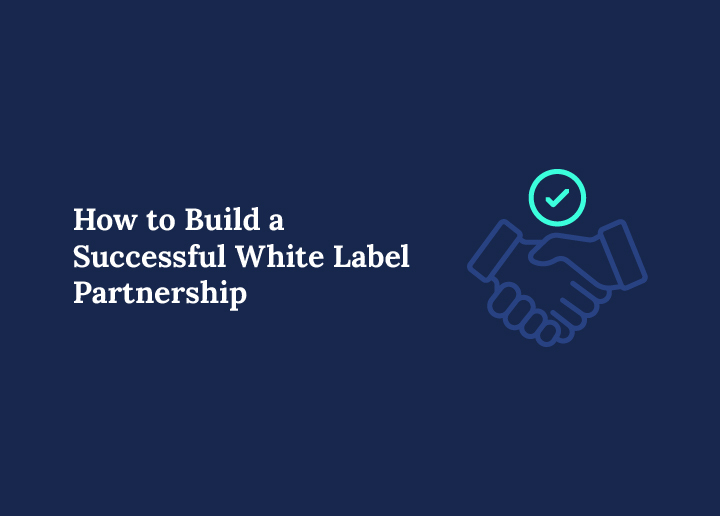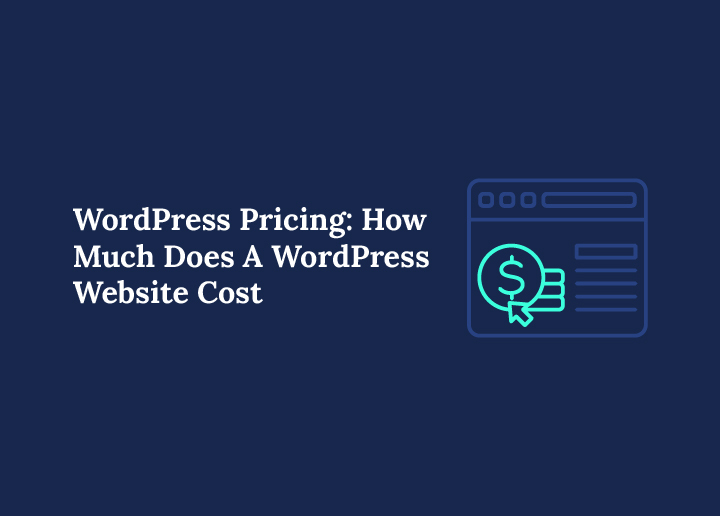In today’s competitive digital landscape, businesses and agencies constantly seek ways to deliver exceptional value, stand out, and build lasting customer relationships. A powerful strategy gaining significant traction is the adoption of a white label website builder. But when you move beyond generic solutions to a self-hosted white label website builder, you unlock an unparalleled level of control, customization, and long-term strategic advantage.
This guide explores the multifaceted benefits of this approach, designed for anyone from budding freelancers to established agencies looking to scale their web development services.
The Power of White Labeling in Web Development
Websites are the bedrock of any modern business. They serve as digital storefronts, communication hubs, and lead generation machines. Web development agencies and entrepreneurs are constantly in demand for stunning websites. This is where the concept of a white-label website builder comes into play.
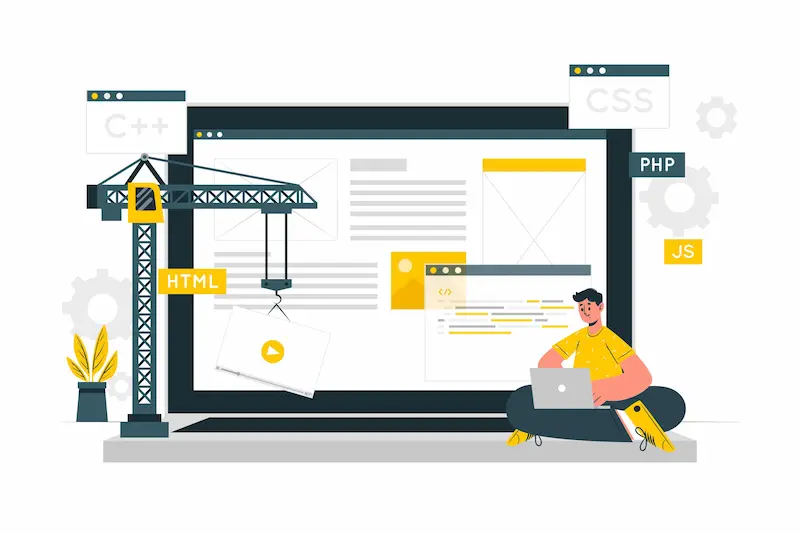
What is a White Label Website Builder?
A white label website builder is a platform that allows you to create and sell websites under your own brand, without revealing the original developer of the platform. Think of it as purchasing a high-quality product and then rebranding it as your own. With a white label website builder, you can offer custom domain options to your clients, increasing brand recognition and customer retention.
This approach empowers you to create stunning websites, landing pages, and other web solutions under your own logo and branding. It helps small businesses and agencies to establish a strong online presence and expand their sales channels by offering a professional, branded service.
Want to Offer WordPress Services Under Your Own Brand?
Partner with Seahawk to resell premium WordPress development, maintenance, and hosting solutions; all fully white-labeled for your agency. Deliver expert service without the overhead.
Why Self-Hosted? A Crucial Distinction
While many white label website builder solutions exist as Software-as-a-Service (SaaS) platforms, a self-hosted white label website builder represents a significant shift in control. In a typical SaaS model, the provider manages the infrastructure, and you essentially “rent” their platform.
With a self-hosted white label website builder, you own the software license and install it on your own infrastructure, server, or Virtual Private Server (VPS). This crucial distinction offers deeper customization and actual ownership, setting the stage for the comprehensive benefits we will explore.
Who is This Guide For?
This guide is for:
- Web design agencies: Small, medium, and large agencies aiming to streamline operations and scale their offerings.
- Freelance web developers: Individuals looking to professionalize their service and establish a stronger brand.
- Marketing agencies: Firms seeking to expand their service portfolio by offering integrated web solutions.
- Entrepreneurs: Anyone aspiring to start a web development business with a solid, scalable foundation.
- Businesses: Companies need ultimate control over their digital assets and want to manage multiple internal sites efficiently.
Also Read: How to White Label Your WordPress Site Like a Pro
Deeper Dive: Understanding the “Self-Hosted” Advantage
The “self-hosted” aspect transforms a standard white label solution into a powerhouse for your business. It moves beyond simple rebranding, providing you with true autonomy.

What Exactly is Self-Hosting in this Context?
Self-hosting means you take responsibility for installing, managing, and maintaining the software on a server you either own or control. This differs significantly from cloud-hosted SaaS solutions, where the vendor handles all server-side operations.
For a self-hosted white label website builder, this often involves a robust Content Management System (CMS) like WordPress, combined with specific white-labeling themes or plugins that allow you to customize every aspect.
Unparalleled Control and Flexibility
One of the most compelling reasons to choose a self-hosted white label website builder is the complete control it offers.
- Full Ownership of Data: Your client’s valuable data resides entirely on your servers. This provides peace of mind regarding data privacy, security, and compliance with regulations like GDPR. You dictate exactly how data is stored and managed.
- Complete Customization: Beyond simply changing a logo or color scheme, self-hosting offers the ability to modify the underlying code of the builder itself (if it’s an open-source solution like WordPress). You can integrate deeply with custom APIs, develop unique functionalities, and create custom elements tailored to specific client needs. This is a level of flexibility rarely found in SaaS platforms.
- No Vendor Lock-in: You are not tied to a single vendor’s ecosystem. You have the freedom to migrate your platform, upgrade components, or switch hosting providers whenever you need, ensuring your business remains agile and independent.
- Scalability on Your Terms: You control the server resources. This means you can precisely scale up or down your infrastructure based on your client’s needs and website traffic. No more being limited by a provider’s fixed plans or unexpected resource caps. You have granular control over performance.
Read More: The Hidden Advantages of White Label Elementor Development
Enhanced Security and Performance
Self-hosting puts security and performance directly in your hands.
- Proactive Security Management: You implement your own security protocols, firewalls, and monitoring systems. This allows for tailored security measures that address the specific needs of your clientele, rather than relying on generic security features.
- Optimized Performance: You can configure server resources (CPU, RAM, storage) and network settings for optimal website speed and page load times. This avoids the “noisy neighbor” effect common on shared hosting environments and ensures your websites deliver fast load times, which is crucial for user experience and SEO.
- Direct Control over Updates: You decide when and how updates are applied to the builder and underlying system. This minimizes potential disruptions to your client websites and allows for thorough testing before deployment.
Cost-Effectiveness in the Long Run
While the initial setup investment for a self-hosted white label website builder might seem higher than a monthly SaaS subscription, the long-term cost benefits can be substantial.
- Lower Per-Client Costs at Scale: As you acquire more clients and create websites, the cost often decreases significantly compared to per-site fees or user-based pricing familiar with hosted solutions.
- Predictable Operational Costs: Your primary recurring expense is hosting, which you control. This leads to more predictable operational costs as your business grows, without unexpected price hikes from a third-party provider.
- Reduced Licensing Fees: Depending on the website builder, you might pay a one-time license fee or an annual renewal for the core software, which can be more economical than continuous subscriptions for each client site.
Further Reading: Top White Label WordPress Care Plan Providers
Core Benefits of White Labeling (Applicable to Self-Hosted)
Beyond the specific advantages of self-hosting, the fundamental benefits of white labeling are critical for any agency or business looking to grow.

Build Your Brand, Not Someone Else’s
This is arguably the most significant benefit of any white label solution.
- Complete Brand Consistency: Everything proudly displays your brand, from the login portals to client dashboards and the very footer of the websites created. This seamless experience reinforces your professionalism.
- Increased Credibility and Professionalism: Offering a seemingly proprietary website builder elevates your agency’s image. Clients perceive you as a full-service web development powerhouse with unique tools.
- Stronger Customer Loyalty: When clients associate the quality websites created with your brand, it fosters deep trust and encourages repeat business. They feel they work directly with your solution, not a generic third-party platform.
- Stand Out from the Competition: In a crowded market, having a distinct, branded offering helps you differentiate your business and establish a unique identity.
Learn More: Behind the Scenes: White Label WordPress Wins
Streamlined Operations and Efficiency
A white label website builder is a powerful efficiency tool.
- Rapid Website Deployment: Utilize pre-built responsive templates, intuitive drag-and-drop functionality, and reusable content blocks to launch stunning websites quickly. This drastically reduces development time.
- Centralized Management: A single, branded dashboard allows you to manage all your client websites efficiently. This central hub simplifies updates, security checks, and client communication.
- Reduced Development Time and Costs: You no longer need to build every website from scratch. This significantly lowers development costs and reduces the need for extensive in-house coding teams for every project.
- Focus on Core Business Activities: By outsourcing the underlying technology, you can spend less time on technical infrastructure management and more on critical business activities like client acquisition, marketing, and strategic planning.
Expand Service Offerings and Revenue Streams
White labeling opens doors to new sales channels and diversified income.
- Offer Comprehensive Web Solutions: You can expand beyond just website building to offer branded hosting, ongoing maintenance, SEO tools, and digital marketing services, all under your brand.
- Recurring Revenue Opportunities: Implement subscription-based models for website creation, hosting, and ongoing support. This creates predictable, recurring revenue, stabilizing your business finances.
- Competitive Advantage: Offering a high-quality, branded service gives you a significant edge over competitors who might rely on generic public platforms.
- Access to New Niches: Easily create specialized templates and solutions for various industries, allowing you to target and serve new market segments effectively.
Discover More: Mastering White Label Beaver Builder Development for Your Agency
Key Features to Look for in a Self-Hosted White Label Website Builder
To maximize the benefits, your chosen self-hosted white label website builder should offer specific key features.

User-Friendly Interface and Design Capabilities
- Drag-and-Drop Functionality: This is paramount for no-code development, allowing users to create websites and landing pages visually without technical expertise.
- Responsive Templates and Mobile-First Design: Ensure that all websites created are inherently mobile-friendly, adapting seamlessly to various screen sizes. This is vital for user experience and SEO.
- Customizable Elements: The ability to control fonts, colors, layouts, and interactive elements empowers you to customize each site to your client’s specific needs.
- Design Flexibility: The builder should allow you to go beyond basic templates, enabling the creation of unique, tailor-made designs.
Also Learn: How to Choose the Right White Label Host Agency for Your Business
Branding and Client Management Tools
- Full White Labeling: The platform must allow you to remove all third-party branding from the builder interface, client dashboard, and generated websites.
- Custom Login Portal: A branded login page for your clients reinforces your brand from the first interaction.
- Client Management System: Tools to manage client websites, accounts, subscriptions, and permissions from a centralized location are essential for efficiency.
- Role-Based Access Control: Define specific custom roles and access levels for your team members and clients, ensuring secure and controlled access to relevant features.
- White Label Reporting: The ability to generate performance reports (e.g., website analytics, SEO progress) with your branding adds significant value for clients.
Technical and Performance Features
- SEO Tools: Look for built-in SEO tools that facilitate meta tag editing, sitemap generation, clean URL structures, schema markup integration, and Google Analytics connectivity.
- Performance Optimization: Features like image optimization, caching mechanisms, and support for content delivery networks (CDNs) are critical for fast page load times.
- E-commerce Functionality: If you plan to build online stores, ensure the builder offers robust e-commerce features or seamless integration with popular e-commerce platforms.
- Integrations: API access and compatibility with other SaaS platforms (CRM, email marketing, payment gateways) ensure your website ecosystem is flexible and expandable.
- Backup and Restore Options: Robust backup solutions are non-negotiable for protecting client websites’ data.
Scalability and Development Support
- Developer-Friendly (if applicable): For advanced users, access to code, hooks, and APIs allows for deeper customization.
- Extensibility: Adding custom plugins, widgets, or themes enhances the builder’s functionality.
- Community and Documentation: For self-hosted white label website builder solutions, a strong community, active forums, and detailed documentation are invaluable for troubleshooting and advanced use cases.
Creating Sites with No-Code (Leveraging Your Self-Hosted Builder)
The “no-code” revolution has democratized web development, and a self-hosted white label website builder perfectly embodies this trend.

The Rise of No-Code and Its Relevance
No code platforms allow users to create websites and web applications without writing any code. This accelerates development, reduces costs, and makes web design accessible to individuals without technical expertise. For agencies, it means faster project turnaround and the ability to take on more clients.
How No-Code Works on a Self-Hosted Platform
Within a self-hosted white label website builder, no-code functionality manifests through intuitive visual editors, drag-and-drop interfaces, and pre-designed blocks. Users can easily manipulate elements on the page, arrange layouts, and populate content, seeing changes in real-time. This visual approach, combined with responsive design, ensures professional-looking websites that perform well on any device.
When properly white-labeled, solutions like WordPress with page builders such as Elementor or Divi offer powerful no-code environments for creating websites. You can focus on designing and building websites, rather than writing code.
Popular Self-Hosted Solutions & Considerations
While many platforms are advertised as “white label website builders,” truly self-hosted white label website builder options are often built upon flexible CMS platforms.
WordPress with White Label Plugins/Themes: The Dominant Player
WordPress is the most popular choice for a self-hosted white label website builder.
- White Label Plugins/Themes: Plugins like White Label CMS, or page builders like Elementor Pro, Divi, or Oxygen Builder with their white-labeling features, transform a standard WordPress installation into a powerful white label website creation tool. These tools allow you to change the admin logo, hide WordPress branding, customize the login page, and create a seamless branded experience for your clients.
- WordPress as a Foundation: WordPress is open-source, highly flexible, and boasts a vast ecosystem of themes and plugins. You install it on your infrastructure.
- Benefits: Unmatched flexibility, a massive community for support, endless integration possibilities (with virtually any SaaS platform), and complete control over your hosting environment. You can truly customize every aspect.
- Considerations: Compared to fully managed SaaS solutions, it requires more technical expertise for initial setup and ongoing management. There is a learning curve for advanced customization and server management.
Explore Further: Top Challenges Agencies Face and How White-Label WordPress Can Solve Them
Other Self-Hostable White Label Options
While WordPress is dominant, some niche or custom-built solutions may exist for specific needs. However, it’s important to understand that most widely available “white label website builders” are SaaS platforms.
The “self-hosted” aspect primarily refers to your control over the hosting environment for platforms like WordPress. Developing a custom self-hosted white label website builder from scratch would require significant development resources.
Key Differentiators When Choosing (Self-Hosted vs. Hosted SaaS)
- Control vs. Convenience: A self-hosted white label website builder offers maximum control; a hosted SaaS solution provides maximum convenience with less management burden.
- Technical Expertise Required: Self-hosting demands more technical expertise for setup and ongoing maintenance.
- Upfront Cost vs. Subscription: Self-hosted solutions often involve a higher initial setup cost but can have lower per-site costs over the long term. SaaS solutions typically have recurring subscription fees.
- Scalability Management: With self-hosting, you manage scalability and ensure your server can handle increased traffic and new client websites.
Pricing Models and Monetization Strategies
A self-hosted white label website builder allows for diverse monetization strategies for your business.

Understanding Pricing Structures
When acquiring the components for your self-hosted white label website builder, consider:
- One-time license fees: Common for premium WordPress plugins or themes.
- Annual renewals: These are for ongoing updates and support for software licenses.
- Server/hosting costs: Your primary recurring expense, which you control.
- Premium add-ons: Potential costs for specialized functionalities or integrations.
Monetization Strategies for Your Agency
- Tiered Website Packages: Offer different levels of website creation services (e.g., basic informational site, premium website with advanced features, e-commerce stores) at varying pricing plans.
- Recurring Hosting & Maintenance Plans: A consistent and predictable revenue stream. Charge monthly or annually for hosting, security updates, backups, and ongoing support for the websites created.
- Add-on Services: Upsell SEO tools, create content, create digital marketing campaigns, and provide specialized support to boost your revenue per client.
- Subscription Model for Clients: Charge clients a monthly or annual fee to access their branded website builder and hosting, providing them with self-service options while you manage the backend.
- Pay-as-you-go for specific features: For example, charge extra for premium custom elements or advanced integrations.
Implementing SEO Best Practices on Your White Label Websites
Effective SEO is critical for both your brand and your client websites. Your self-hosted white label website builder provides the tools you need.

Foundation: Technical SEO from the Platform
Ensure your chosen self-hosted white label website builder (like a well-configured WordPress instance) allows for:
- Clean Code and Fast Loading: The underlying platform should generate clean, optimized code that contributes to fast page load times, a key SEO factor.
- Mobile Responsiveness: All responsive templates should ensure websites adapt seamlessly to all devices.
- Customizable URLs, Meta Data: You can customize permalinks, meta titles, and descriptions for every page.
- XML Sitemap Generation and Robots.txt Control: Essential for guiding search engines.
On-Page SEO Strategies
- Keyword Research: Conduct thorough keyword research for your business and clients’ industries.
- Content Optimization: Ensure websites feature high-quality, relevant, and engaging content.
- Proper Heading Hierarchy, image alt text, and Internal Linking: Implement these on-page fundamentals to improve content structure and readability.
- Schema Markup: Utilize schema markup to help search engines better understand the content on your websites.
Off-Page SEO Considerations
- Link Building: Develop ethical strategies to acquire high-quality backlinks for websites created.
- Local SEO: Optimize their online presence for clients with physical locations for local search.
- Google My Business Optimization: A crucial step for local businesses.
Know More: Best Free White Label SEO Reports for Agencies & Freelancers
Monitoring and Analytics (White Label Reporting)
Integrate websites with tools like Google Analytics and Search Console. Provide branded reports to clients demonstrating their SEO performance. Analyze data regularly to refine strategies and show tangible results.
Further Reading: Best White Label SEO Agencies in New York for Your Business Needs
Conclusion
A self-hosted white label website builder is an exceptional solution for agencies and businesses eager to create and sell websites under their own brand. It is more than just a tool; it is a strategic asset that provides ultimate control, fosters stronger client relationships, and unlocks significant growth potential.
With the right platform, you can create stunning websites, elevate brand recognition, and expand your sales channels. You gain the freedom to customize every detail, ensuring your offerings are perfectly aligned with your vision and your clients’ needs. This level of autonomy leads to superior performance, enhanced security, and a more predictable cost structure in the long run.
